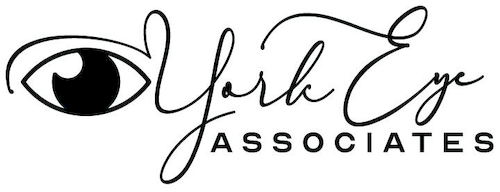We use the most up-to-date technology to ensure the best eye care possible. Here are some of the different types of tests and equipment you may experience on a visit to our Practice.

BlephEx
BlephExTM hand piece precisely and carefully, spins a medical grade micro-sponge along the edge of your eyelids and lashes, removing scurf and debris and exfoliating your eyelids.

MiBo Thermoflo
Delivers consistent emissive heat to the meibomian glandular apparatus and liberated surfactants and improved lipid secretions create an enhanced tearfilm. Improved corneal wetting reduces or eliminates the signs and symptoms of ocular surface disease

TearLab Osmolarity System
TearLab's sophisticated lab on a chip technology tests a tiny tear sample to measure Osmolarity, or the salt content in the tears. This gives doctors a meaningful measure of the health and stability of the protective tear film that covers the surface of your eyes.

CT-80 Non-Contact Computerized Tonometer
Non-contact tonometer whose totally automated operation results in error-free ocular pressure measurements

ARK-530A
The ARK-530A offers superior zonal ring-image method technology using SLD. It also features automatically fogging and high-speed measurements.

Octopus 300
This is used to assist with Glaucoma detection. It's designed for the examination, analysis and documentation of the field of sight, especially the light difference sensitivity and other functions of the human eye.

CIRRUS 5000
Includes the latest in retina and glaucoma diagnostics, such as OCT angiography and en face imaging

Daytona plus
Provides digital images of 200 degrees or up to 82% of the retina in a single, non-contact optomap image. Includes special software to give your doctor more insights.

Humphrey Matrix FDT Visual Field
An ideal Glaucoma screening device that provides a clinically verified, fast and affordable means of detecting early visual field loss.

Optomap
The optomap® Retinal Exam produces an image that is as unique as you fingerprint and provides us with a wide view to look at the health of your retina. The scan will show us a healthy eye or detect disease.

iCare Tonometer
This accurate painless puffless tonometer measures the eye's intra-ocular pressure (IOP).

Cirrus 4000
The ZEISS Cirrus HD-OCT 4000 (Cirrus HD-OCT or Cirrus) enable examination of the posterior and anterior of the eye at an extremely fine spatial scale, without surgical biopsy or even any contact with the eye. The Cirrus HD-OCT builds on and refines the retinal imaging technology first introduced with the ZEISS Stratus OCT™. HD-OCT stands for "high-definition optical coherence tomography."
Employing the advanced imaging technology of spectral domain optical coherence tomography, Cirrus HD-OCT acquires OCT data about 70 times faster (27,000 vs. 400 A-scans per second) and with better resolution (5 μm vs. ~10 μm axial resolution in tissue), compared to first-generation OCT technology. Cirrus acquires whole cubes of OCT image data, composed of hundreds of line scans, in about the same time as Stratus acquires a six-line scan. You can view these data cubes in three planes, or through three dimensions, giving you access to an extensive amount of retinal image data in one scan.
Intended Use
The Cirrus HD-OCT with Retinal Nerve Fiber Layer (RNFL), Macular, Optic Nerve Head, and Ganglion Cell Normative Databases is indicated for in-vivo viewing, axial cross-sectional, and three-dimensional imaging and measurement of anterior and posterior ocular structures.
Indications for Use
